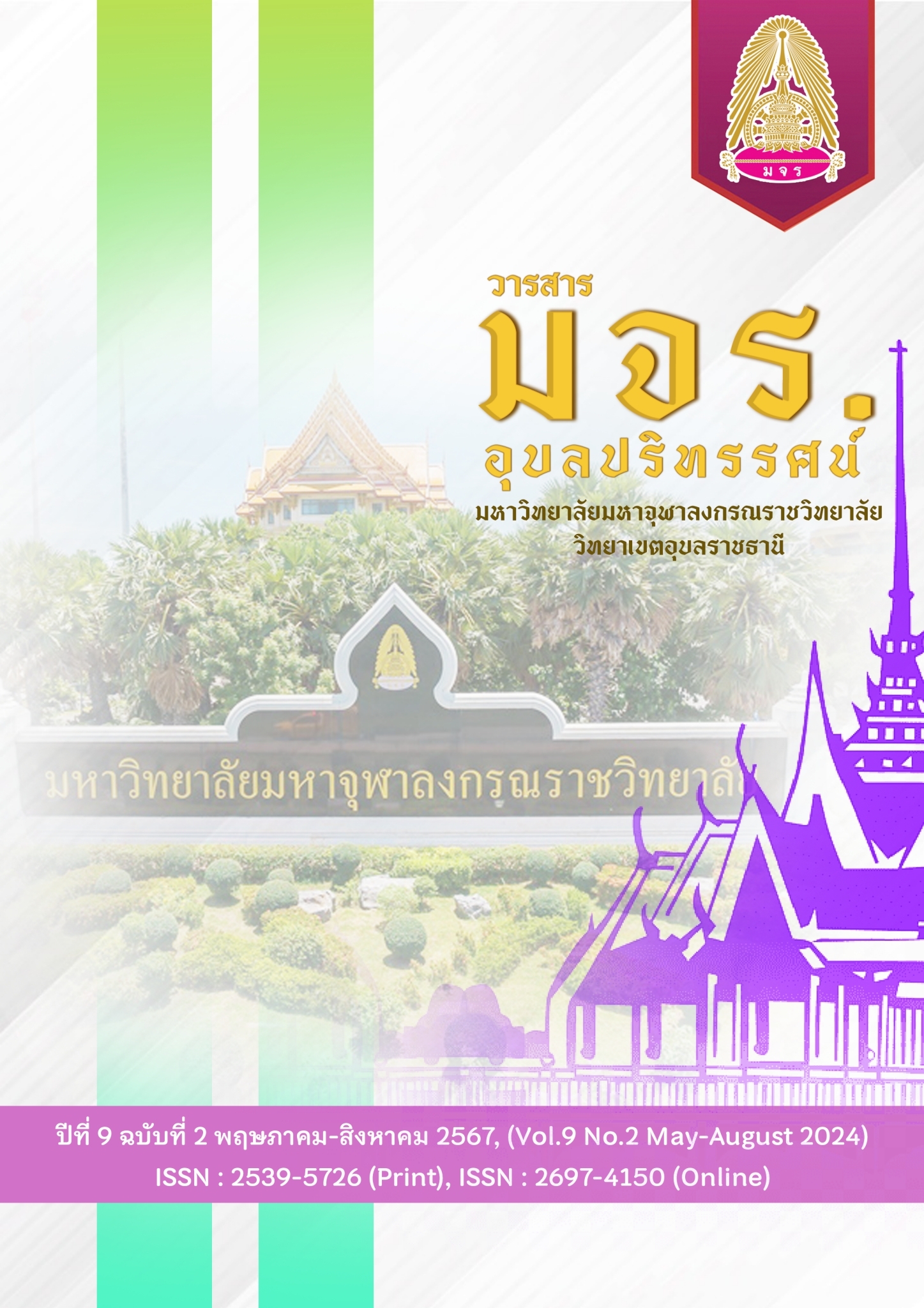The Journey to the West, Moral principles and Concept in Literature
Main Article Content
Abstract
The journey to the West is one of the four great works of Chinese literature and is also known to Thai readers. The story centers on the journey of Tang Sanzang and his disciples to obtain the Buddhist scriptures, featuring many miracles and supernatural events. This article presents the concepts of the literature from a literary perspective, including the author's background, moral lessons embedded in the main characters, and social ideas present in Journey to the West.
This article found that the author, Wu Cheng'en, was a writer with a background in social critique. The primary purpose of writing Journey to the West was to spread Mahayana Buddhism by creating main characters who represent various moral teachings and weaving these into the story. Additionally, the narrative subtly incorporates political and social ideas.
Article Details
References
Cai Tieying. (2006). The Origin of The Journey to the West. Beijing :
Chunghwa Book.
Cao Ran. (2004). Discover the Journey to the West. Beijing: Minzu Publishing.
Chen Hong. (2002). Buddhism and Chinese Traditional Novel. Shanghai: Xuelin
Publishing.
Chen Wenxin and Yue Yun. (2002). The Journey to the West: Insights into Life.
Wuhan: Wuhan University Press
Liu Gang and Fang Guixin. (2005). The Journey to the West and Wisdom.
Shenyang: Liaohai Publishing.
Liu Ge. (2004). New Theory of The Journey to the West. Beijing: Xueyuan
Publishing.
Liu Huaiyu. (2006). The Journey to the West: Illustrated Biographies of the
Characters. Changchun: Jilin People Publishing.
Liu Yinbo. (2006). Liu Yinbo on The Journey to the West. Beijing: Chunghwa
Book.
Zhang Jinchi. (2003). An Examination of the Journey to the West. Harbin:
Heilongjiang Education Publishing.
Zhu Yixuan. (2002). Journey to the West: Compendium of Information. Tianjin:
Nankai University Press.

